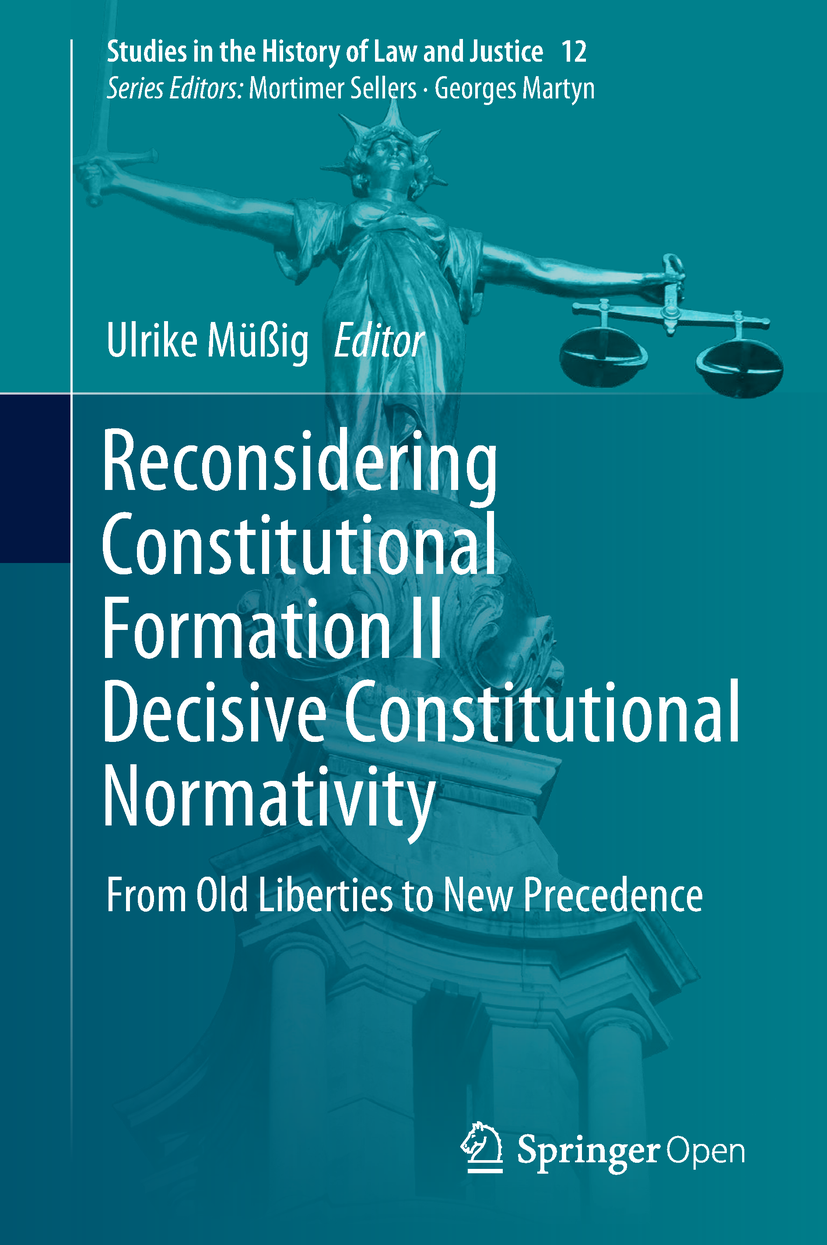
Abstract
This second volume of ReConFort, published open access, addresses the decisive role of constitutional normativity, and focuses on discourses concerning the legal role of constitutional norms. Taken together with ReConFort I (National Sovereignty), it calls for an innovative reassessment of constitutional history drawing on key categories to convey the legal nature of the constitution itself (national sovereignty, precedence, justiciability of power, judiciary as constituted power).
In the late 18th and early 19th centuries, constitutional normativity began to complete the legal fixation of the entire political order. This juridification in one constitutional text resulted in a conceptual differentiation from ordinary law, which extends to alterability and justiciability. The early expressions of this ‘new order of the ages’ suggest an unprecedented and irremediable break with European legal tradition, be it with British colonial governance or the French ancien régime. In fact, while the shift to constitutions as a hierarchically ‘higher’ form of positive law was a revolutionary change, it also drew upon old liberties. The American constitutional discourse, which was itself heavily influenced by British common law, in turn served as an inspiration for a variety of constitutional experiments – from the French Revolution to Napoleon’s downfall, in the halls of the Frankfurt Assembly, on the road to a unified Italy, and in the later theoretical discourse of twentieth-century Austria. If the constitution states the legal rules for the law-making process, then its Kelsian primacy is mandatory.
The volume includes essays of the PI, the Post-Docs and other international researchers:
Furthermore the volume includes the French originals and English translations of two vital documents. The first – Emmanuel Joseph Sieyès’ Du Jury Constitutionnaire (1795) – highlights an early attempt to reconcile the democratic values of the French Revolution with the pragmatic need to legally protect the Revolution. The second – the 1812 draft of the Constitution of the Kingdom of Poland – presents the ‘constitutional propaganda’ of the Russian Tsar Alexander I to bargain for the support of the Lithuanian and Polish nobility. These documents open new avenues of research into Europe’s constitutional history: one replete with diverse contexts and national experiences, but above all an overarching motif of constitutional decisiveness that served to complete the juridification of sovereignty.
The open access version is available here:
Reconsidering Constitutional Formation II Decisive Constitutional Normativity
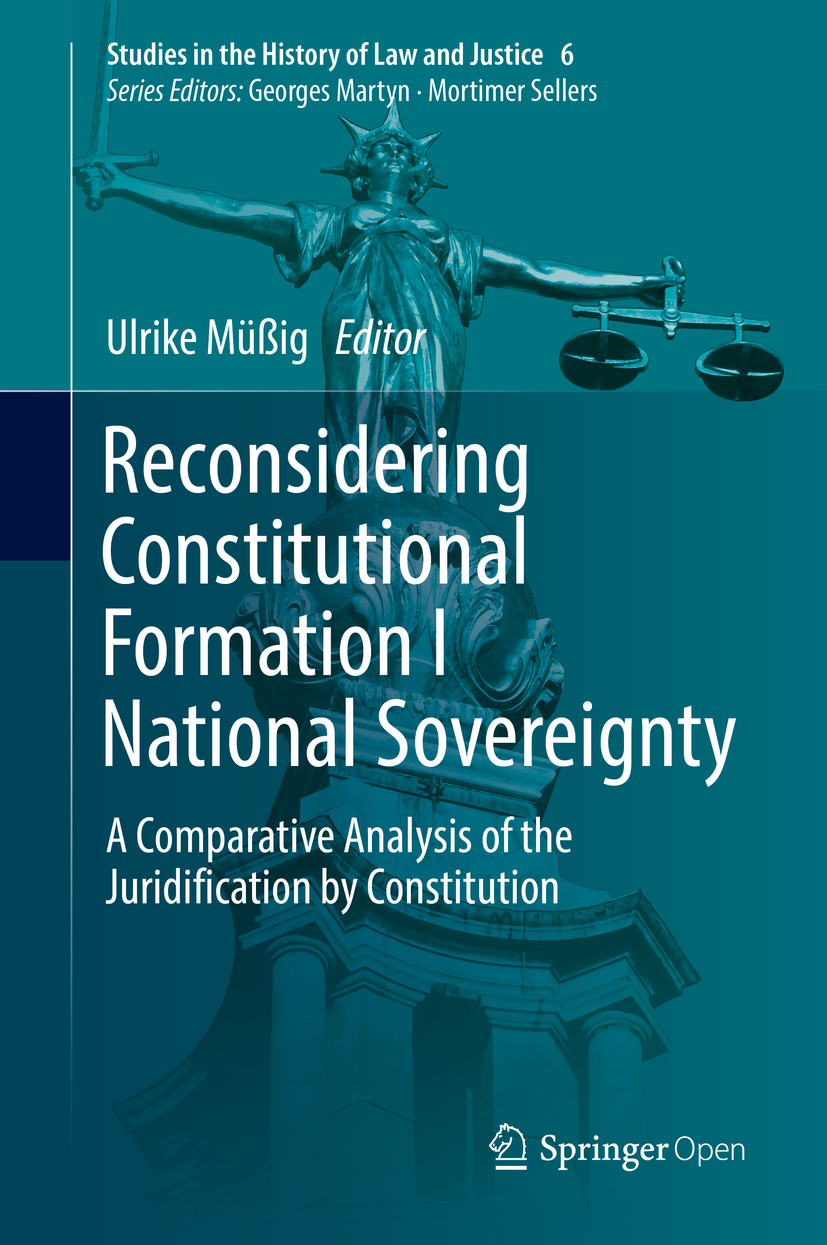
Abstract
The Research project ReConFort, dealing with communication dependencies of historic constitutions, reconsiders the national constitutional discourses of the 19th century. Following the key category national sovereignty as tertium comparationis it became clear, that it was a distinctive feature of the 19th c.-Europe to loose ‘national borders’ and to accumulate the historic constitutional debates around central topoi and in cross-border correspondances of protagonists. So far we have identified the topoi national/constitutional sovereignty, precedence of constitution, accountability of politics and the judiciary as constituted power.
The volume includes essays of the PI and the Post-Docs:
Furthermore , it provides the first English translation of the Statute "Our free Royal Cities in the States of Rzeczpospolita".
The open access version is available here:
The volume has been reviewed by Prof. Dr. Andrzej Dziadio (Uniwersytet Jagielloński w Krakowie).
The review can be found online here: A New Image of the History of the European Constitutionalism. Some Remarks on the Monograph Entitled Reconsidering Constitutional Formation in National Sovereignty. A Comparative Analysis of the Juridification by Constitution, ed. by Ulrike Müßig, Springer Open, 2016.
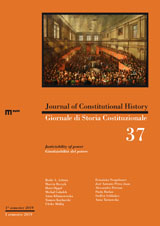
Justiciability of Power / Giustiziabilità del potere
ISBN 987-88-6056-612-6, ISSN 1593-0793
This issue includes the contributions:
Ulrike Müßig, Introduction - Kopernik and ReConFort: A Copernican Turn in Comparative Constitutional History? Available in Open Access here.
Horst Dippel, Constitutional History as the History of Modern Constitutionalism: Germany since 1871
Franziska Neugebauer, The Power of Proceedings and the Justiciability of Absolutism: The Trial of Charles I Revisited Available in Open Access here.
Tomasz Kucharski, «Treasury settlements» accepted by the General Diet in the Polish-Lithuanian Commonwealth (1569-1791). A purely feudal institution or a great step towards modern parliamentary control on the implementation of the budget by the government?
Steffen Schlinker, Justiciability of rule through the example of the Electorate and Kingdom of Hannover
Anna Tarnowska, «Willing that the Guard of Law should be responsible to the Nation for their action…». Justiciability of power in the Era of Polish May Constitution of 1791
Anna Klimaszewska, La prise à partie in the French Code of civil procedure of 1806 and the question of the extent of judges’ legal liability in the first half of the 19th century in the Polish territories Available in Open Access here.
Michał Gałędek, The monarchical sovereignty and the ministerial responsibility in the course of works on the constitution for the Kingdom of Poland, 1814-1815 Available in Open Access here.
Marcin Byczyk, The fiction of ministerial accountability in the Kingdom of Poland (1815-1830). Consideration of the inefficacy of extrajudicial bodies in the field of criminal responsibility
José Antonio Pérez Juan, The prosecution of deputies: the ‘Tribunal de las Cortes’ in the liberal triennium (1820-1823)
Bodie A. Ashton, «Subjects of our most gracious Majesty». Constitutionalism and constitutionalisation in South Australia Colony: An Agenda for Future Research
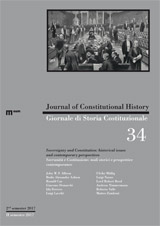
Sovereignty and Constitution: historical issues and contemporary perspectives / Sovranità e Costituzione: nodi storici e prospettive contemporanee
ISBN 987-88-6056-550-1, ISSN 1593-0793
This issue includes the contributions:
Ulrike Müßig, Introduction - The "invented" sovereignty Available in Open Access here.
Ulrike Müßig, Coke’s ‘Tales’ about Sovereignty. Available in Open Access here.
John W.F. Allison, The Westminster Parliament’s Formal Sovereignty in Britain and Europe from a Historical Perspective.
Lord Robert Reed, Re-thinking the UK Constitution.
Luigi Lacchè, The Sovereignty of the Constitution. A historical Debate in a European Perspective.
Andreas Timmermann, Ulrike Müßig, Sovereignty doctrines in the constitutional debates around the Cádiz Cortes: Transition of monarchical sovereignty to national sovereignty? Available in Open Access here.
Bodie Alexander Ashton, Constitutionalism as a force of popular loyalty: Constitutional and unconstitutional Württemberg in the early nineteenth century. Available in Open access here.
Ida Ferrero, Rethinking the electoral and constitutional system: the works of Palma and Brunialti on the Norwegian constitution.
Matteo Zamboni, The Treatment of Italians Abroad in the Legal Opinions of the Consiglio del Contenzioso Diplomatico of the Italian Ministry of Foreign Affairs (1861-1907).
Luigi Nuzzo, The remains of the sovereignty. Settlements and land governance in Tianjin.
Giacomo Demarchi, Sovereignty, autonomy, democracy: the spanish Estado integral of 1931 as a laboratory of contemporary regionalism.
Luigi Lacchè, On the Italian Style: The Eclectic Canon and the Relationship of Theory to Practice as key-elements of Italian Legal Culture (19th- 20th Centuries).
Ronald Car, The Antifa-Block chimera. In search of the form of government for a "better Weimar " in the Soviet Occupation Zone.
Roberto Valle, The faces of ideas. Dostoevskij, drawer artist, calligrapher and art critic.

Ulrike Müßig, Reason and Fairness - Constituting Justice in Europe, from Medieval Canon Law to ECHR
Throughout Europe, the exercise of justice rests on judicial independence by impartiality. In Reason and Fairness Ulrike Müßig reveals the combination of ordinary judicial competences with procedural rationality, together with the complementarity of procedural and substantive justice, as the foundation for the ‘rule of law’ in court constitution, far earlier than the advent of liberal constitutionalism.
The ECHR fair trial guarantee reads as the historically-grown consensus of the functional judicial independence. Both before historical and contemporary courts, justice is done and seen to be done by means of judgements, whose legal requirements combine the equation of ‘fair’ and ‘legal’ with that of ‘legal’ and ‘rational.’ This legal determinability of the judge’s fair attitude amounts to the specific (rational) European idea of justice
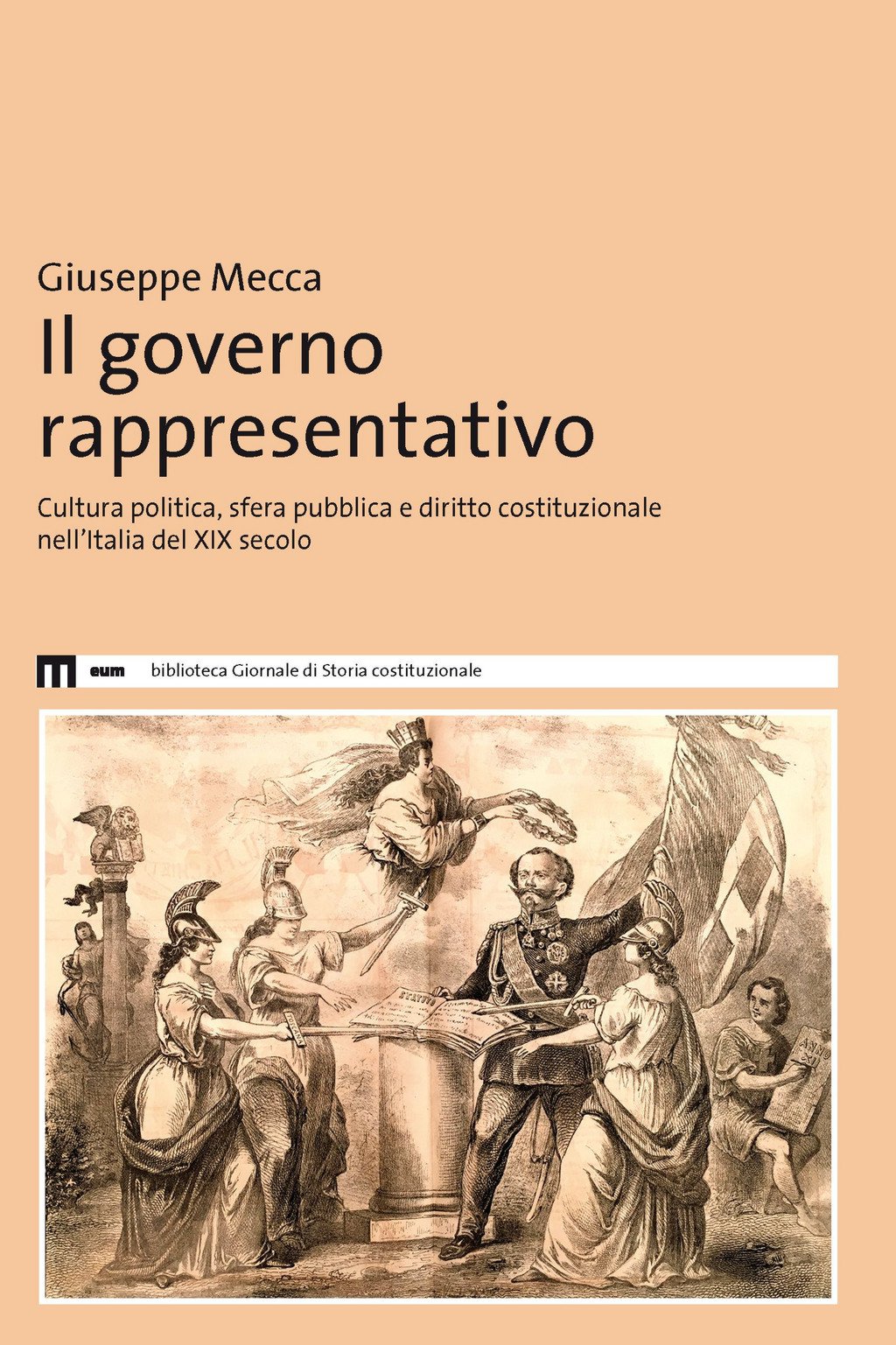
Giuseppe Mecca, Il governo rappresentativo
The history of representative government is the narration of a communication strategy and how this concept is the product of the self-assertion of Italian liberal élites.
In the nineteenth century the development of constitutional government was closely connected to the birth of a public sphere that began to know and openly discuss themes and issues of general interest in some states especially from the 1840s. Not yet undermined by other means of communication, the press responded, in liberal states, to the general need for information, by becoming a propaganda tool for values, identity and belonging, and a channel for the formation of opinions. The theme of “communication” is therefore essential for the purposes of this survey: public opinion interacted with a new flow of political and constitutional information and the newspapers probably had more influence than “parties” and political associations.
The historical concept of representative government is a “space” open to the dynamic dimension of the circulation of ideas, knowledge, norms and practices. Assuming as the object of observation the category of representative government, accompanied by its complex and ambiguous conceptual network, meant entering the workshop of Italian constitutional practice, retracing the ideas that led to its formation and grasping the consolidation of the first constitutional doctrine.
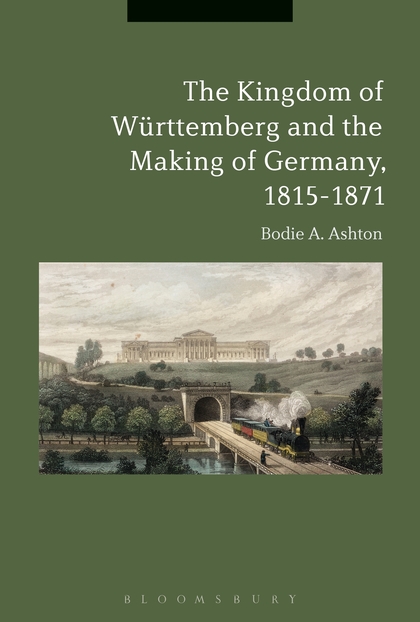
Bodie A. Ashton, The Kingdom of Württemberg and the Making of Germany, 1815-1871
The publication has been honoured by the American Library Association’s Choice magazine as one of its Outstanding Academic Titles of 2017. This distinction is judged on the basis of excellence, relevance, distinction, originality, value, and importance of the scholarship to the academic field. In the original review in the July issue, Choice noted that Ashton’s work is a ‘remarkable study’ that offers new insights into the German unification process: ‘It is hard to give this book sufficient praise; lucid and thoroughly researched, it brings the past to life, and the sections on politics, economic growth (or the absence of it in southern Germany), and warfare are equally effective. If the unification of Germany came in a way that was unexpected (the author notes in closing), what came afterward was equally unpredictable.’
[Reprinted with permission from CHOICE http://www.choicereviews.org, copyright by the American Library Association.]
Bodie Ashton's monograph entitled 'The Kingdom of Württemberg and the Making of Germany, 1815-1871' is congruent with the idea of ReConFort that constitution is not only the body of text, but rather the consensus of those to be ruled by the constituted sovereignty. Therefore, his analysis of the intricacies of constitutionalism and constitutional identification in nineteenth century-Württemberg is a fine example of re-considering constitutional formation within the communicative dependency of historic constitutional processes.
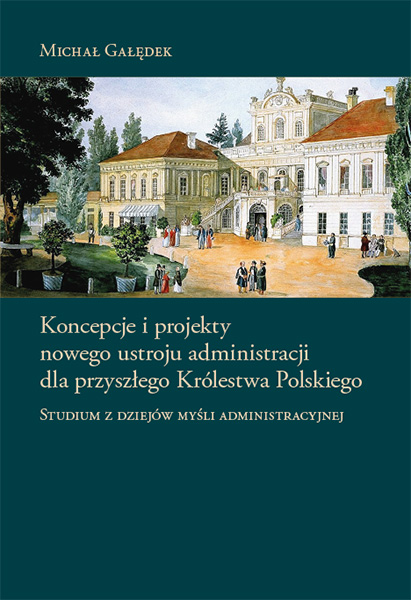
Michał Gałędek, Koncepcje i projekty nowego ustroju administracji dla przysz?ego Królestwa Polskiego
The monograph by Michał Gałędek presents the process of rebuilding administrative structures on the eve of establishment of the Kingdom of Poland in 1815, in connection with the plans of tsar Alexander I to grant a liberal constitutional political system to the Kingdom. In the manuscript review, Professor Tadeusz Stegner wrote that this dissertation “is a valuable one, furthering not only our knowledge of the political concepts concerning administration on the Polish territories in the early 19th century, but also of the development of Polish political thought. The source bases of the work are many and varied, mostly archival. It must be underscored that a considerable part of these materials has not been applied extensively prior to now, which makes the Author’s monograph a pioneering work”.
English edition: Due to ReConFort's support an English edition has been published by Brill in 2020.
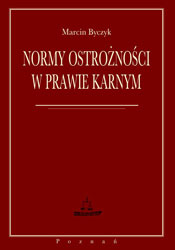
Marcin Byczyk, ‘Normy ostrożności w prawie karnym’ (‘Norms of cautiousness in criminal law’)
Dr. Marcin Byczyk, member of the ReConFort research team in charge of the Polish 1815-constitution, has published his dissertation ‘Normy ostrożności w prawie karnym’ (‘Norms of cautiousness in criminal law’) on 30th November 2016. The highly prestigous publishing house ‘Ars Boni et aequi’ at Pozna? has accepted Dr. Byczyk’s comprehensive PhD research work, due to his attachment to the Advanced Grant ReConFort. Before joining the ReConFort team as post doc in 2015, he has served the progress of the ReConFort’s interests in the 1791-May constitution by translating the Polish sources during his doctoral studies from 2012 to 2015.
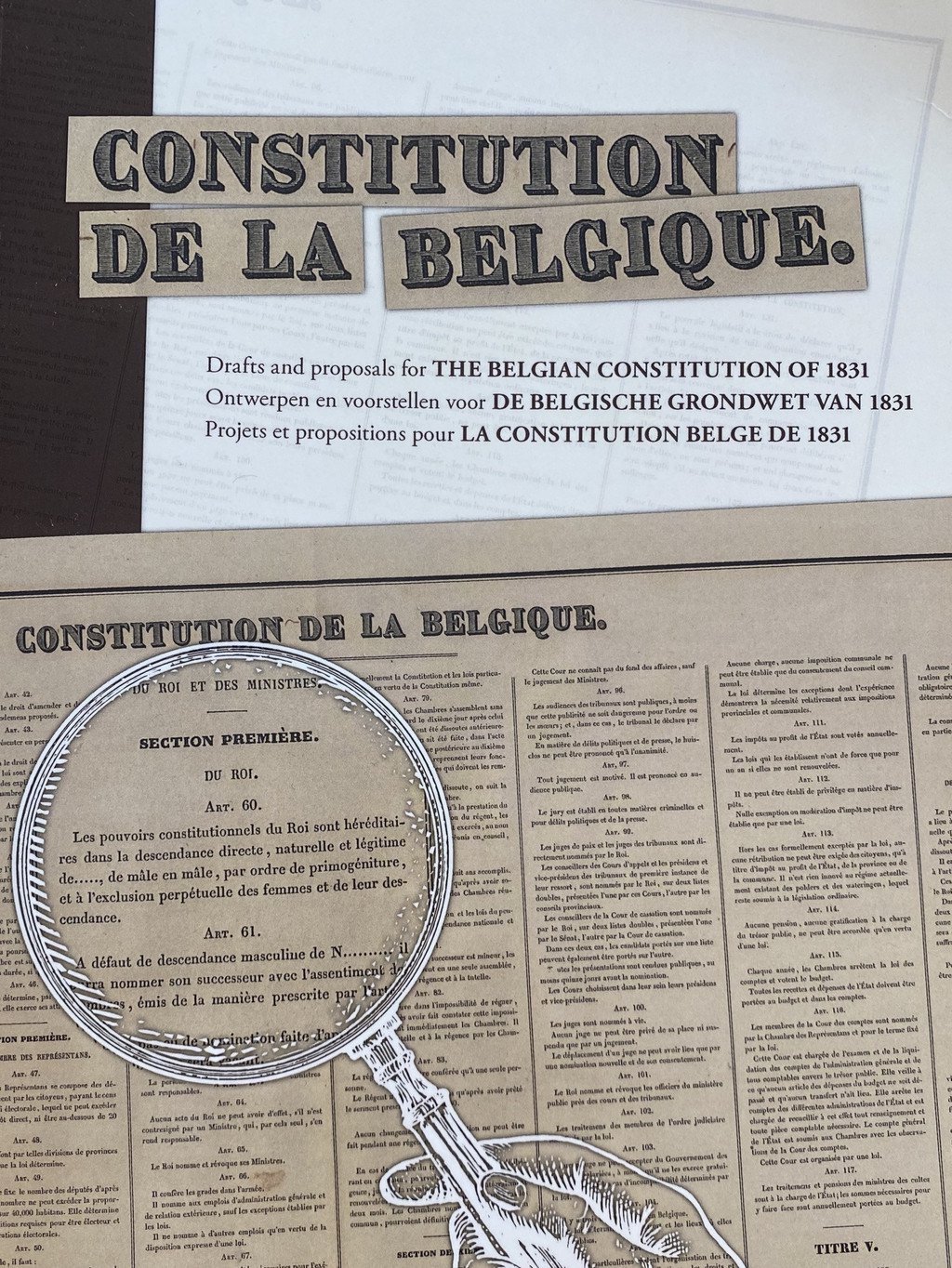
Brecht Deseure (ed.), Constitution de la Belgique
The interdependency between constitutional formation and discourse was the guiding rationale for ReConFort. Constitutional drafts, therefore, are participation in constitutional formation par excellence. In order to understand the real goals of the constitutional framers, they allow to understand the constitutional formation processes as intersected with public participation. In both word and spirit, the Belgian Constitution of 1831 was always a document subject to and intending public engagement. Consequently, the road to the constitutional draft of the Constitutional Commission was paved (and commented) with individual proposals, as though they had been tendered in response to an enlightened call for papers regarding legislative initiatives. These constitutional proposals, compiled and edited by Brecht Deseure on the basis of the material provided by Michel Magits, provide therefore a unique testimony to the historical interest in the Belgian constitutional formation. The major part of the edited sources has beforehand been published open access in the ReConFort database via sources.reconfort.eu, contributing to the digital accessibility of the European heritage.
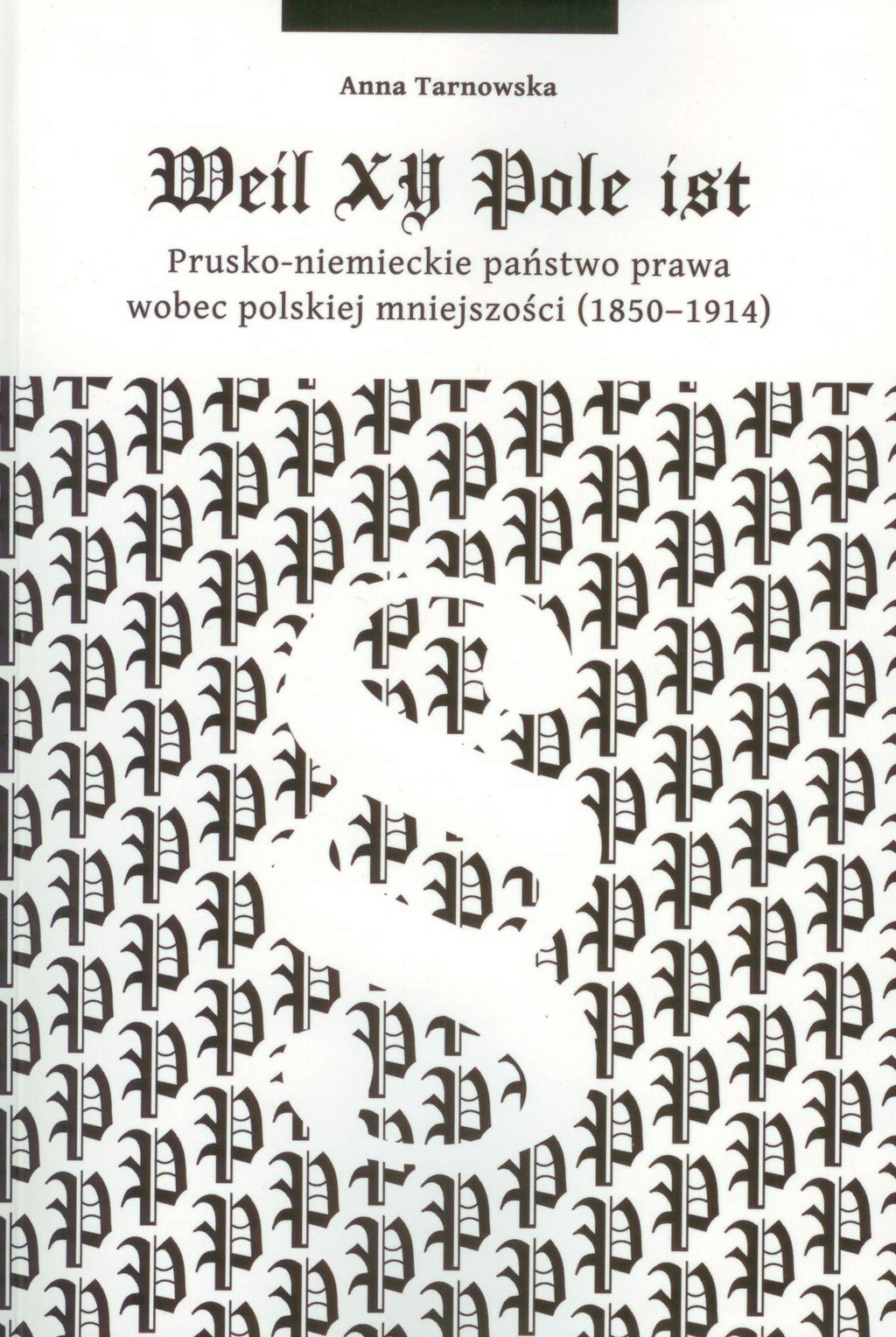
Anna Tarnowska, Weil XY Pole ist - Prusko-niemieckie państwo prawa wobec polskiej mniejszości (1850-1914)
Dr Anna Tarnowska's dissertation on the legal aspects of Prussian-German policy in the years 1850-1914 towards the Polish minority “reconsiders” the real borders of the Prussian-German 'rule of law'. Based primarily on a study of the sources of law and legal practice of the Prussian authorities and the authorities of the Second German Reich, the former Polish ReConFort-member presents the Prussian-German conception of the rule of law, both in the prevailing theoretical views and against the background of the contemporary legal solutions in force.
The legal situation of the Polish minority in the Prussian partition is analyzed in regard to the then "Realpolitik" of Chancellor Bismarck, i.e. in the image of "law in action". Bismarck's policy was based on the creation of successive "enemies of the state". This role, to a large extent, was played by the Polish minority in the Prussian state from 1848 onwards; this study once again sheds light on the need to examine cross border constitutional discourses.
Reconsidering Constitutional Formation. Desafíos en la Investigación de la Historia del Derecho comparado, Codex de Estudios Histórico-Jurídicos. VI-VII (2014-2016), 555-587.
Transparency by court organisation. Judicial independence "in front of" the German Courts in the 19th and 20th centuy, in: Danuta Janicka (Hrsg.), Judiciary and Society between Privacy and Publicity. 8th Conference on Legal History in the Baltic Sea Area, 3rd-6th September 2015, Toruñ 2016, 463-505.
The notion of souvereignty in the constitutional process of Cádiz (1810-1812). Marius Müller in: IVS FVGIT Nr. 19, Zaragoza 2016, 175-208.
ReConFort Open Database - Digitisation of Historical Documents Influencing the Constitutional Forming Process in Europe for Open Access, 10th International Conference on Advanced Computer Information Technologies (ACIT) 2020, with Harald Kosch and Armin Gerl. Available here